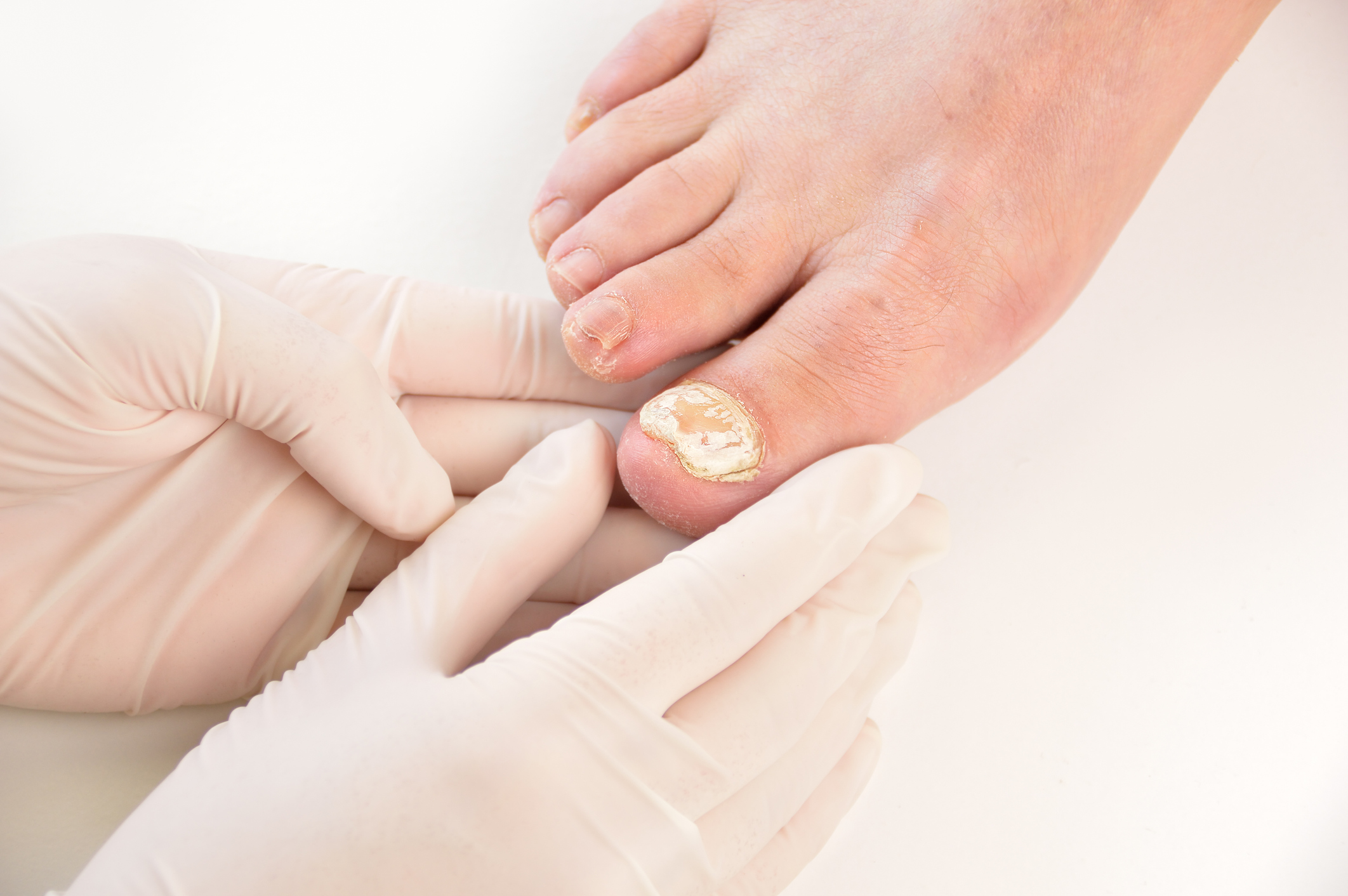Fungal infections of the nail occur when feet are in a constant warm and moist environment where bacteria and fungus thrive. The kind of fungi that can affect the toenails is also responsible for other conditions such as athlete's foot, ringworm, and jock itch, so it’s important to take care of the fungi as soon as possible to avoid having multiple issues.
Fungal infections can also be picked up at nail salons from dirty tools such as emery boards and nail clippers, so be sure to pick a reputable salon and ask how the tools are disinfected to avoid picking up any nasty infections.
At Risk Groups for Fungal Infections
Although fungal infections can happen to anyone, there are a few groups who are more susceptible to them, including those who:
Have diabetes
Are 65+ in age
Are male
Wear artificial nails
Use public swimming pools
Have a nail injury
Have a weakened immune system
Wear closed-toe shoes for long periods of time
Have a family history of fungal infections
Have poor circulation
What Does a Fungal Infection Look Like?
Noticeable signs of a fungal nail infection include:
A scaly appearance underneath the nail
White or yellow streaks present on the nail surface
Yellow spots near the bottom of the nail
Total loss of the nail
Distorted in appearance
A foul odor emitting from the nail
However, these symptoms can mimic other types of conditions, so the only way to know for sure if it’s a fungal infection would be to see a local podiatrist who can assess the situation and possibly send you in for testing.
How Is a Fungal Nail Infection Treated?
Although there are over the counter medications for fungal nail infections, they typically aren’t recommended due to their ineffective or slow working nature. Instead, you will more than likely be prescribed one of the following:
terbinafine (Lamisil)
itraconazole (Sporanox)
fluconazole (Diflucan)
griseofulvin (Gris-Peg)
Tips to Prevent Fungal Nail Infections
Even if you’re part of the at-risk groups, there are ways to help yourself from getting a fungal nail infection. A good starting place would be to take care of your nails by keeping them clean and trimmed. There are other ways to help prevent fungal nail infections too, including:
Drying your feet thouroughly after being wet
Getting manicures or pedicures from clean and reputable nail salons
Wearing breathable socks and shoes
If you have any reason to suspect that you have a fungal nail infection, get in touch with our office by calling (416) 654-5515.


Comments